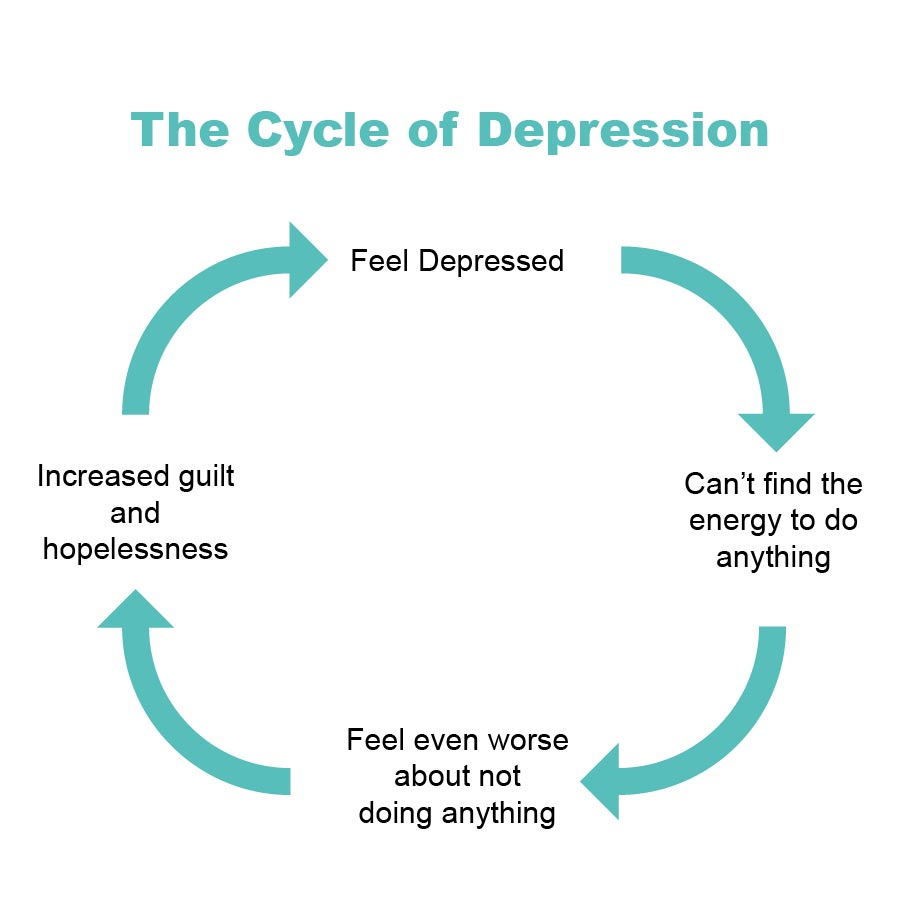Depression Treatment In Sydney
What Is Depression?
While it is common to have days where you feel sad or blue, depression is more wide-ranging and pervasive and can impact many aspects of your life, including your ability to perform at work or in relationships. You may find dealing with daily life around Sydney is a struggle and also feel unable to ask for help due to the effects of depression.
Although there are different types of depression, for the most part it is still best thought of as an emotion. This means that depression itself is not your enemy, but rather getting stuck on it for extended periods of time is a problem. This would be the same for any emotion. We just tend to dislike being stuck on feeling low as it’s unpleasant.
What Are The Symptoms Of Depression
Depression can include a range of feelings and everyone may experience different combinations, but some of the common ones are:
- sadness and hopelessness
- a loss of interest or pleasure in ordinary activities
- feeling irritable, guilty, or worthless
- suicidal thoughts
- difficulty concentrating
- difficulty sleeping
- fatigue
- changes in appetite and weight
The symptoms of depression can interfere with your ability to perform at your best and can make it difficult for you to fully participate in your community around Sydney and workplace. You may struggle with simple daily activities and feel reluctant to reach out for support.
What Causes Depression?
Depression can have both biological and social causes. Often times these two factors can interact. For example, you may have a personality that creates a genetic predisposition to more neuroticism. By itself this isn’t a bad thing, in fact, it probably helps you solve complex problems. However, if you encounter a really big life event like a being made redundant, the end of a relationship, or a major health issue that you can’t control, then the neuroticism could start to backfire. You might start to over-engage with the difficult experience and get stuck thinking about how hopeless everything has become. This path will lead you to feeling depressed.
On a neurological level, depression is caused by changes to chemicals in your brain called neurotransmitters including dopamine, seratonin, and norepinephrine. Because of these neurological factors some people choose to use pharmacological interventions to decrease feelings of depression.
But remember depression is an emotion and it’s there for a reason. Depression is there to help communicate to others that you need help so you can get past the difficult experience. The problem is sometimes we retreat, when we need to come forward.
The Depression Lethargy Cycle
Now that you understand how depression can start, it’s important to learn how it continues. One of the ways that people often get stuck on depression is through the Lethargy Cycle. Have a look at the diagram below:

As you can see in the vicious cycle of depression diagram, you get trapped in depression when you start to decrease your levels of activity. This makes you feel that you’re wasting time and not achieving anything in life which funnels back in to that depressed belief about everything being hopeless. As so you can start going around and around, progressively getting more depressed.
The key of course is to start doing things!
Types Of Treatment For Depression
Cognitive Behavioural Therapy (CBT): CBT aims to help you shift depression by exploring the evidence for your critical beliefs. It often involves learning how to identify common thinking errors and developing new perspectives.
Acceptance and Commitment Therapy (ACT): ACT approaches depression by trying to help build flexibility in your thoughts and actions. This perspective holds that depression is a result of being “fused” to beliefs that perpetuate unhelpful patterns of action.
Schema Therapy: Schema Therapy can be helpful for types of depression that have been caused by long-term issues that have resulted in unhelpful habits. These habits are often keeping you trapped in interpersonal dynamics that can result in low mood.
Depression Treatment Strategies To Get You Started In Sydney?
Pleasant Activity Scheduling
In order to start to beat low mood it’s important to break the lethargy cycle. This won’t fix everything, but it will stop you continuing downwards. One of the big traps people who are feeling low often face is that they don’t have any desire to do anything. Withdrawal is their general order of the day.
You can start to shift this by slowly increasing the amount of pleasant activities that you do each day. Start by creating a list of pleasant activities you might be interested in. Make sure there is a range here from small things like going for a walk around the block, all the way up to bigger things like taking a little holiday outside of Sydney. You then need to schedule one pleasant activity in each day.
When you start doing this you’re pushing back against the cycle of low mood by doing something. That way at the end of the day you can take a moment to stop and say to yourself “okay, I might have not done much today, but at least I got down to the shops to get the groceries”.
Mindfulness Meditation
Developing skills in Mindfulness can be a great way of learning to step back from the low mood and start to notice the different experiences going on in your mind and body.
Research has consistently shown that regular mindfulness practice is great at helping to manage depression. It won’t stop you from ever feeling low mood again, but it will allow you to learn to let go of emotions rather than getting stuck on them.
Check out our most recent Mindfulness recording to start to learn how to connect with the present moment.
Our Top 10 Tips For Managing Depression In Sydney
- Monitor your mood to find depression triggers
- Schedule daily activities
- Keep up regular low-level physical exercise
- Develop a list of pleasant activities
- Learn to let go with Mindfulness
- Identify your common thinking errors
- Stay social – don’t withdraw
- Develop defusion strategies
- Eat healthy food so that your body feels physically good
- Remember that depression is an emotion, not a disease

Summary
Feeling sad is rarely pleasant. Sure we all enjoy an occasional tear-jerker movie, but that’s with the knowledge that we’ll feel good again soon after. If you notice yourself getting stuck on depression for long periods then it’s probably a good hint that something is getting in the way of you moving on to the next emotion.
Be kind to yourself and give yourself time to do some pleasant activities while you work on whatever is the root cause.
Treating depression starts with making a choice that you want to change. Talk to your Doctor or Clinical Psychologist about the options that are available to help get unstuck from depression.
Don’t forget to check out our other toolbox guides as well to help you on your way towards living the life you want to live.
Start Treating Your Depression With Cadence Psychology In Sydney
If you’re interested in getting treatment for depression in Sydney then we’d love to hear from you. Cadence Psychology provides sessions with Medicare rebates meaning you can start getting affordable help today.
Contact
us today to schedule a free intake call and see how we can best help
you. You can call us on 0478 876 678 or leave us a message using the
contact form below.
